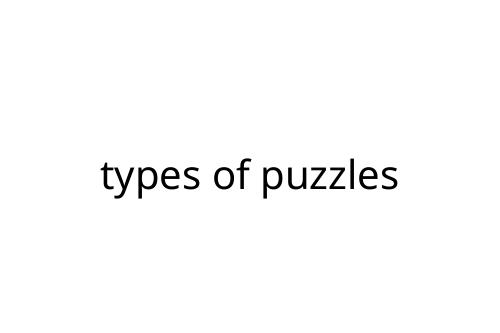types of puzzles
Puzzles have always attracted curious minds. Whether you’re looking for a mental workout, a quiet way to relax, or a challenge to share with friends, the types of puzzles available today span a surprisingly wide range. Each kind offers something unique, catering to different interests, skill levels, and problem-solving styles.
Jigsaw Puzzles
Jigsaw puzzles are a classic. You get a box filled with oddly-shaped pieces and the goal is to fit them all together to form a complete image. They come in a range of difficulties. Some have a few large pieces and simple patterns, while others have thousands of tiny pieces with repeating colors. Jigsaw puzzles are great for improving spatial reasoning and patience. The only downside: they require a flat surface, some concentration, and time—sometimes lots of it.
Logic and Number Puzzles
These puzzles appeal most to analytical thinkers. Crosswords, Sudoku, and Kakuro are prime examples. Crosswords test your vocabulary and trivia memory, while Sudoku relies on arranging numbers so every row, column, and block contains a unique set. Kakuro combines logic and math. The pros here are mental sharpness and a portable format (most fit on a page or phone screen). For beginners, these can feel intimidating—start with easier versions and build up.
Mechanical and Physical Puzzles
Think Rubik’s Cube, disentanglement puzzles, or wooden brain teasers. Mechanical puzzles require manipulation, pattern recognition, and often a bit of trial and error. They’re rewarding once you “crack the code,” but can be frustrating during the learning curve. These types of puzzles also make good desk toys, keeping your hands active while you think through solutions.
Word and Trivia Puzzles
For those who love language and general knowledge, word puzzles are ideal. Classic examples include cryptograms, riddles, and word searches. Trivia puzzles or quiz-type games challenge your recall of facts or connections between ideas. These types of puzzles tend to be more social and are often found in newspapers, mobile apps, or party games.
Visual and Pattern Puzzles
Some puzzles rely on visual perception and pattern recognition. Picture puzzles, spot-the-difference, and tangrams fall into this category. They test your observation skills and sometimes creativity. These modes can be relaxing—especially for those who prefer intuition over calculation.
Digital and Video Game Puzzles
The digital age brought us new types of puzzles, from escape room games to mobile apps full of logic challenges. Video games like Tetris or Portal combine reflexes, timing, and critical thinking. Digital puzzles offer variety and progression, but can become overwhelming if you’re just in it for a casual challenge.
Choosing the Right Puzzle
If you're not sure where to start, try a few different types of puzzles and see which style is the most satisfying. Consider starting simple—there’s no need to jump straight into a 5,000-piece jigsaw or the hardest Sudoku.
Puzzles aren’t just a pastime. They expand mental flexibility, provide focus, and sometimes offer a social outlet. Whichever types of puzzles you choose, expect some frustration, a few small victories, and—if you stick with it—a rewarding sense of achievement.



